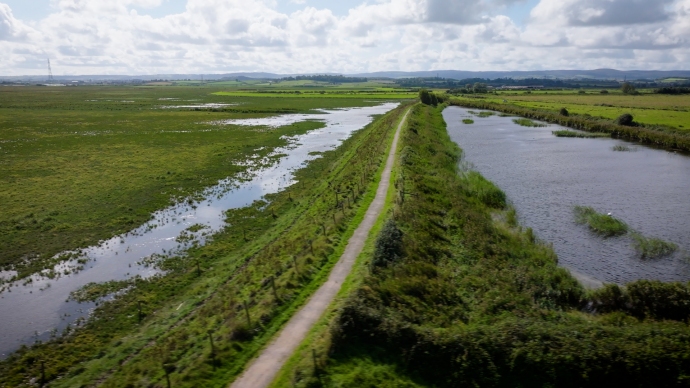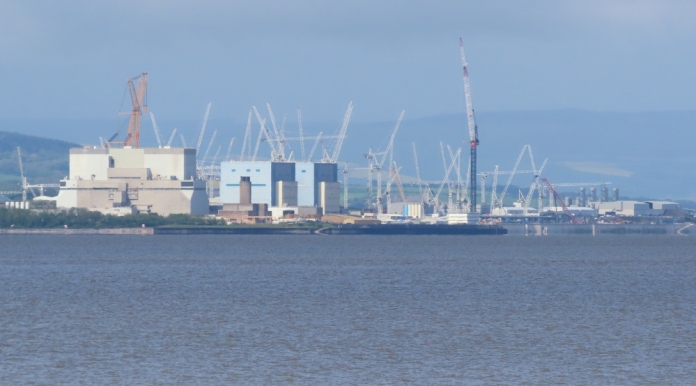Burnham-On-Sea and Highbridge town councillors have called on EDF to rethink its plans to remove an acoustic fish deterrent system at Hinkley Point C, warning that millions of fish could be killed without proper controls in place.
They have raised concerns that millions of fish could be sucked into the power station’s cooling system in the sea near Stert Island if the planned fish deterrent system does not get installed.
EDF says it wants to create more than 800 acres of saltmarsh alongside the River Parrett instead. This, it claims, would ‘create new habitat for fish and animals, improve local water quality and help prevent flooding.’
However, during their latest Town Council meeting, Burnham and Highbridge councillors have voted to ask EDF to further investigate the use of a fish deterrent system.
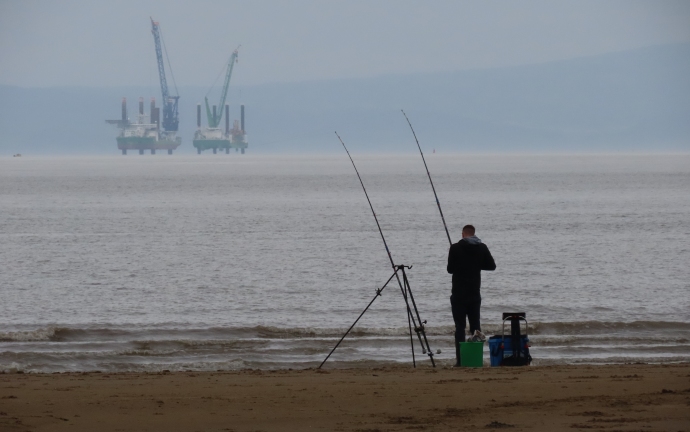
Highbridge councillor Cllr Barbara Vickers said: “There are something like 182 million fish per year that could be sucked in – think they need to put something in place to make the fish swim away from it.”
“Having read their document, they are planning to abandon the fish deterrent system – we are going to have 60 years of this power station being operational with a huge loss of fish and a knock-on to the food chain. The numbers are supported by the Environment Agency.”
“Hinkley are riding roughshod over this. I think we should continue to push EDF for the deterrent even if it’s not put in place for the start. We can’t go 60 years without it. I don’t think we can abandon this – we have to keep fighting on this.”
Burnham and Highbridge’s Mayor Cllr Lesley Millard added: “We’re saying we want them to continue to explore a means of finding an acoustic fish deterrent. We welcome the 300 hectares of new habitat but we would much more prefer them to find a solution to the fish deterrent.”
EDF says the proposed new wetland habitat is one of a number of proposed measures that aim to help wildlife and the environment around the Severn estuary, including planting of seagrass and kelp, developing native oyster beds,
The plans are being developed with Natural England, Natural Resources Wales and the Environment Agency as a natural alternative to installing an acoustic fish deterrent. The deterrent had been proposed to keep some fish species away from the power station’s cooling water system.
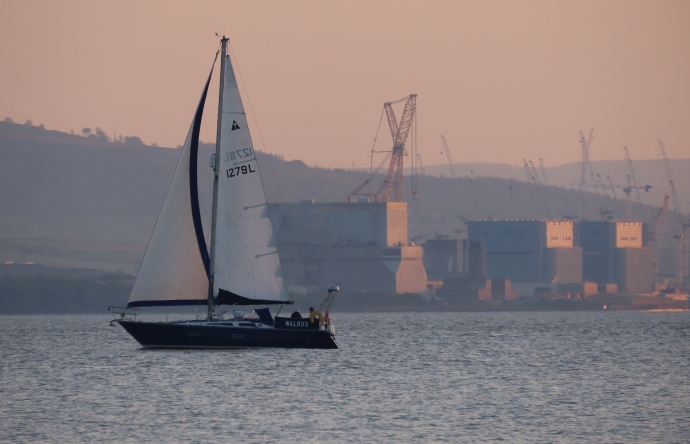
EDF says creating the new saltmarsh is “a proven way to increase and protect biodiversity. It will help fish by providing breeding grounds and provide food and shelter for birds and animals. Tidal marsh also filters and cleans water, prevents floods
Steart Marshes, opposite the proposed new wetland, was created nine years ago and is now alive with birds, fish and wildlife, and is a popular place for recreation.
A spokesperson for Hinkley Point C said: “The total amount of all fish estimated to be harmed without the Acoustic Fish Deterrent has been predicted by the marine experts at Cefas to be in the range of 18 to 46 tonnes in a year – less than the annual catch of one small fishing vessel.”
An EDF spokesperson adds: “The creation of new habitat to help protect fish populations replaces a proposal to install an acoustic fish deterrent system. This system would use 280 speakers to make noise louder than a jumbo jet 24-hours a day for 60 years. Its impact on porpoises, seals, whales, and other species is unknown.”
“Independent studies showed it would offer a very small potential benefit to protected fish species. It would also risk the safety of divers in the fast-flowing tides of the Bristol Channel. ”
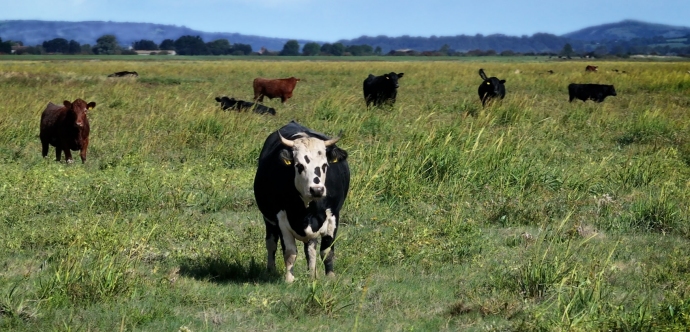
Chris Fayers, Head of Environment at Hinkley Point C, adds: “The new wetland would
“Hinkley Point C is one of Britain’s biggest acts in the fight against climate change and its operation will provide significant benefits for the environment.”
Burnham Boat Owners Sea Angling Association has spoken out against removing acoustic fish deterrents to Hinkley Point’s water intakes in the Bristol Channel, saying the removal would “seal the fate of an enormous amount of marine life.”
Environmental campaigners say they fear millions of fish could be killed every day by the Hinkley Point C nuclear power station if EDF does not install an acoustic fish deterrent.
EDF’s proposals for habitat creation and other changes to Hinkley Point C’s design, such as alterations to the way the power station will store spent fuel, are included in a public consultation launched on 9th
